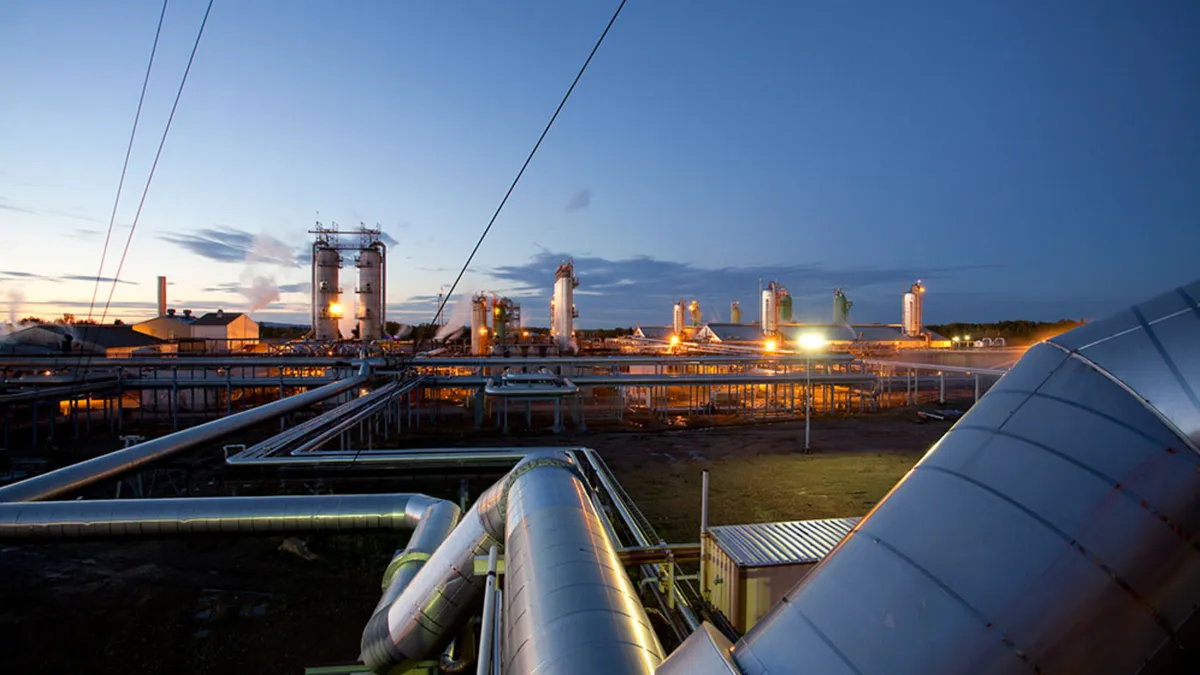Dive Brief:
- The Court of Appeals for the District of Columbia Circuit ruled yesterday that federal regulators should have considered the impacts of climate change when considering whether to approve the Southeast Market Pipelines Project last year.
- Environmental group Sierra Club filed a lawsuit after the Federal Energy Regulatory Commission (FERC) approved the group of projects last year, claiming the agency failed to assess climate impacts and alternate routes that would have less of a disruption. The Southeast Market Pipelines Project consists of three pipelines, the largest of which is the Sabal Trail pipeline in Florida.
- Judge Thomas Griffith wrote the decision for the court, concluding FERC's environmental review “should have either given a quantitative estimate of the downstream greenhouse emissions that will result from burning the natural gas that the pipelines will transport or explained more specifically why it could not have done so.”
Dive Insight:
The court's decision could have wide-ranging implications for infrastructure, as it directs FERC to examine climate impacts of how the gas is being used.
Sierra Club Staff Attorney Elly Benson, in a statement, said that even though the pipeline is intended to deliver natural gas to Florida power plants, "FERC maintained that it could ignore the greenhouse gas pollution from burning the gas. ... Today's decision requires FERC to fulfill its duties to the public, rather than merely serve as a rubber stamp for corporate polluters' attempts to construct dangerous and unnecessary fracked gas pipelines."
The Sabal Trail pipeline would run more than 500 miles through Alabama, Georgia and Florida and would supply gas to Florida Power and Light and Duke Energy of Florida. The project is a joint venture of Spectra Energy Partners, NextEra Energy and Duke Energy.
While President Trump has issued an executive order to ease the siting of major infrastructure, Karp said the court's decision strongly indicates "that courts still consider a federal agency’s thorough evaluation of the impact of GHG emissions to be an essential element of [National Environmental Policy Act] compliance."
InsideClimate News points out that this is the second federal court to rule this month that downstream impacts must be taken into account. Earlier in the month, a District Court judge rejected a Montana coal mine expansion in Montana Environmental Information Center v. U.S. Office of Surface Mining.
Richard Revesz, director of the Institute for Policy Integrity, said the two rulings show how Trump’s executive order "is misguided and shortsighted."
"The executive order gives federal agencies a false sense of security that they can ignore the cost of greenhouse gas emissions in their policy decisions," Revesz said in a statement. "But as these recent rulings show, agencies will lose legal challenges when they don’t appropriately consider climate change impacts. Rather than speeding the process of infrastructure and energy development, the Trump administration has risked slowing it down.”














